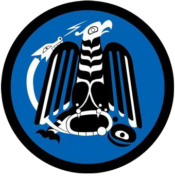c’išaaʔatḥ ḥawiiḥ introduction
[Your quuʔas name] ʔukłaamaḥ histakʷaayačił quuʔaciic ʕimtii
[Your legal name] ʔukłaamaḥ Elizabeth Darlene Hope Taylor mamałn̓iqiic ʕimtii.
What house do you sit under & what families sit under your house?
(c`išaaʔatḥ, hiikuułʔatḥ, maqƛiiʔatḥ, ḥačaaʔatḥ)
Where is your original ḥaaḥuułi before you amalgamated with the original c’išaa and it merged with the Tyee of c’išaa?
What ʔuštaqimł (family) do you come from? Shewish and Taylor
[Clutesi, Gus, Santu, Shewish, etc]
Share some of your ʔuštaqimł (family) History.
My father was Adam Shewish, my mother was Ramona Gus (nee Taylor), her quuʔas name was Imya. I was not raised in my fathers house but with my mother Ramona Gus and grandmother Elizabeth Taylor (nee Cole of the Squamish nation). My mother had one half brother George Paull who grew up with his mother in the Coast Salish. My mother also had a much younger adopted brother who was Tim Taylor, he was one of the younger sons of my grandmothers niece.
Share your story and ʔuštaqimł (family).
I live on the Tseshaht reserve, I left the reserve when I was about 20 to go to Camosun College in Victoria and eventually went to the University of Victoria. I moved around through the years. First to Vancouver and as subsequent jobs moved me around the province from Vancouver to Port Alberni to Hope, Lytton, Revelstoke, Kamloops and Victoria. My final job posting was in Vancouver where I worked from 1989 through 2018. After my mother passed away and I decided to retire from my job I returned to Port Alberni to care for my sister Pam as she was treated for cancer. I never married and have no children.
[Where do you live? Where did you grow up? Do you want to move home? What is your profession, passion, hobbies, who are your children, significant others, etc]
What are your strengths? Strengths are caring for the elderly, reading and understanding tax law.
What are your goals and dreams for Tseshaht? My goals and dreams for Tseshaht are for an end to domestic violence, an educated population to be able to pick up the management, stewardship of the lands and resources of our traditional lands.
